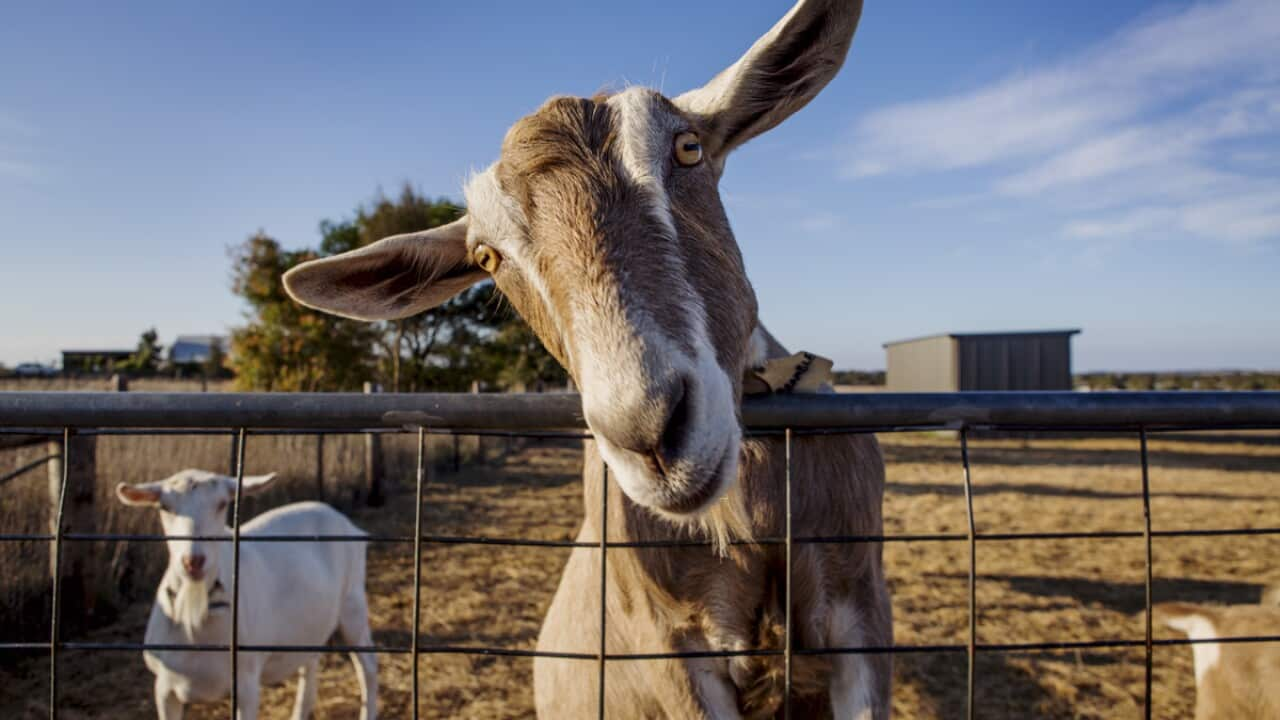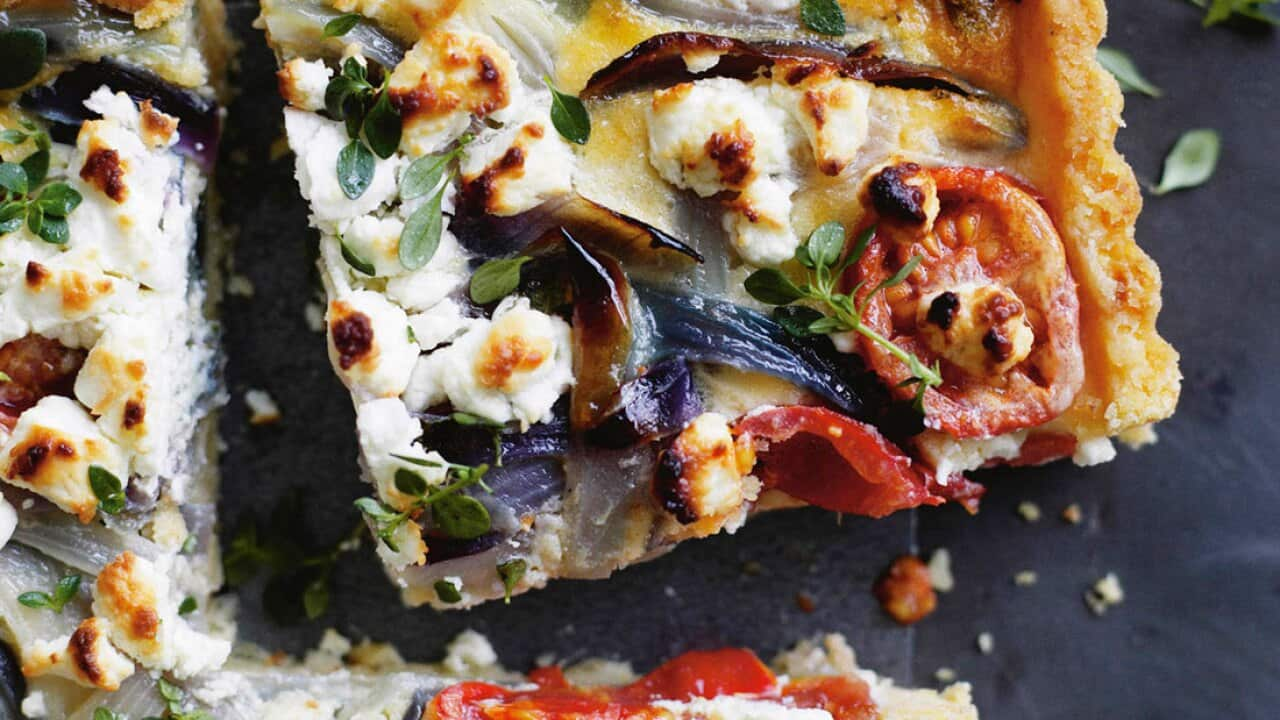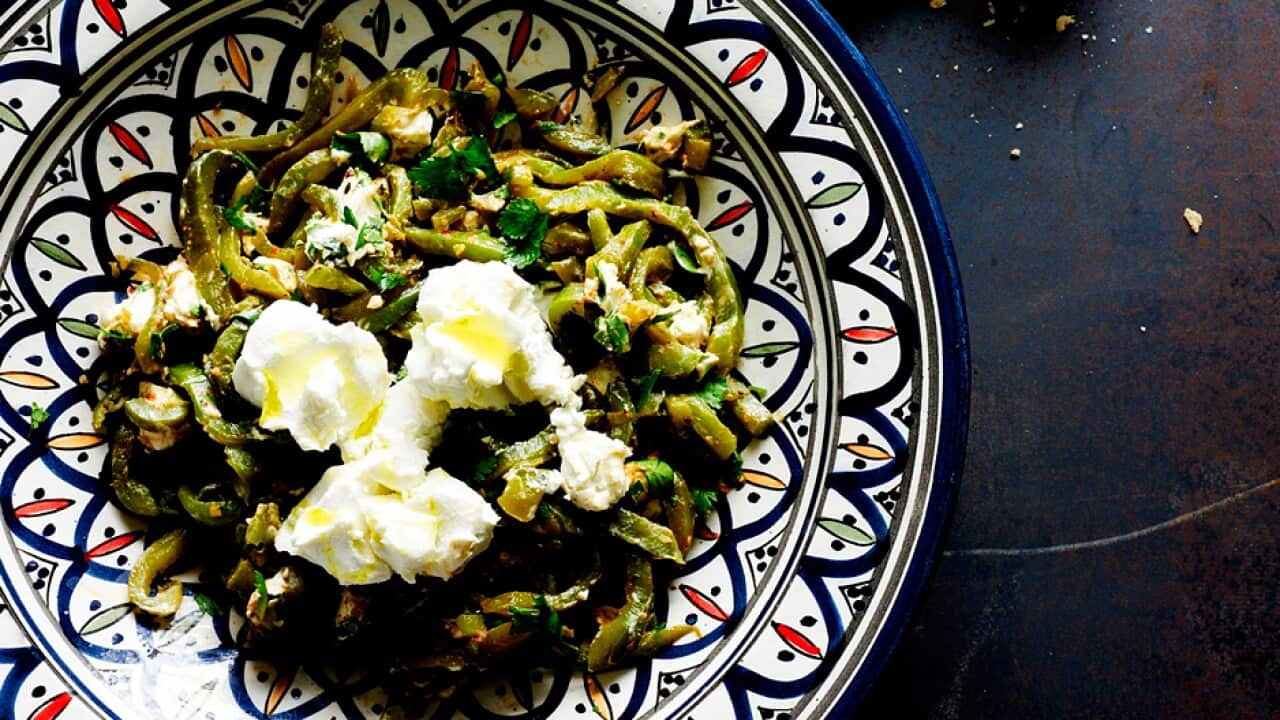Speaking to cheesemonger Claudia Bowman, there is a very real fear that this is going to be the shortest article on artisan cheese production ever written. After asking her whether Australia is the , as some in the industry have suggested, Bowman bursts out laughing. "Absolutely not! You only have to look at New York State, California, the UK, Ireland and New Zealand to see how far behind Australia really is in artisan cheese experimentation and production." Now, Bowman - the powerhouse behind McIntosh & Bowman (mcintoshandbowman.com) - is a woman who knows a thing or two about cheese. Over the past 12 years, she's worked on a wide variety of projects based around the good stuff, including the events and classes she runs in both Sydney and Melbourne, and her award-winning 'Ask the cheesemonger' app. There's also her seat on numerous international cheese judging panels. So clearly, her comments carry weight.
With all the exciting changes taking hold ... there's actually never been a more exciting time to be an Australian artisan cheese enthusiast
But just as things start looking decidedly depressing, Bowman discloses that she and her husband Matt will soon be packing up their young family and heading overseas for a six-month apprenticeship with “a very famous artisan cheese producer”. She is in the process of significantly expanding the cheese company and planning to build an inner city Sydney micro dairy to showcase NSW fresh milk. Big moves for such an ailing industry? But that's just it - the industry is far from ailing, says Bowman. "While I wouldn't go as far as saying we're the new frontier, with all the exciting changes taking hold in the fresh milk and cheese industries, greater public interest and demand for artisan cheese, and greater numbers of new cheese producers and products entering the market, there's actually never been a more exciting time to be an Australian artisan cheese enthusiast."

Cheesemonger Claudia Bowman: Exciting changes for artisan cheese. Source: McIntosh & Bowman
We love cheddar
As evidenced by the endless blocks taking up the supermarket cheese aisles, Australia is, in essence, still a cheddar-loving nation. According to the Australian Bureau of Statistics, although cheese is regularly consumed by 32 per cent of the population, 67 per cent of that is of the hard, ripened variety (with processed cheese pulling in the silver medal at 22 per cent). Yet while surface-ripened cheese makes up only 3 per cent of the cheese we consume, the number of artisan cheesemakers is growing at an unprecedented rate, says Australian Specialist Cheesemakers' Association (australiancheese.org) secretary, Alison Lansley. "You have to remember that while we have a history of being world leaders - both in quality and quantity - in the industrially produced dairy products to the rest of the world, the small-scale, artisan and farmhouse end of the cheese industry is still very young," she says. "I'd go as far as saying we are indeed the new frontier simply because so much of the potential here is tantalisingly evident, but still sadly unrealised."
A key factor in the “tantalisingly close” scenario are the 2015 changes to the Food Standards Code which allow for a wider range of raw milk cultures to be produced in, and imported to, Australia. It's an update to the Code's last amendment in 2012, which allowed for Australian cheesemakers to finally use raw milk in cheese production - but only if used to produce very hard "cooked curd" cheeses. While the standards are complex and will require cheesemakers to demonstrate that a combination of factors are met during cheesemaking (such as pH, water activity, salt concentration), the standards are based on good cheesemaking methodology, says Lansley. "Sure, it will seem onerous for cheesemakers to follow and meet the new standards, [but] it's our personal view that it will result in cheeses of consistently high quality because they will need to be made using top quality milk, by skilled cheesemakers able to apply consistent methods and produce demonstrably consistent results."
It's a great leap forward in terms of being able to creating a true taste of place in situations where pasteurisation is mandatory...
Also promising are last year’s results of a trial on indigenous cultures conducted by the Australian Specialist Cheesemakers' Association in conjunction with scientists from Dairy Innovation Australia ("One of less than a handful of such trials around the world," says Lansley). Simply put - raw milk is teeming with yeasts, molds and bacteria that make up a microbiological fingerprint which can distinguish the milk of one herd from that of another. In layman's terms, this means you can pick individual flavours from a herd in King island that would taste completely different to a similar herd in the Fleurieu Peninsula - even if two producers made exactly the same cheese. Since milk loses these properties during the pasteurisation process, the cheesemakers (using modern culture technology) produced prototype cultures from the milk of three producers - Holy Goat Cheese (goat's milk), L'Artisan Cheese (cow's milk) and Prom Country Cheese (sheep's milk) - and used DNA sequencing to identify, isolate, purify and propagate microbes. A variety of cheese where the adjunct cultures were added to the pasteurised milk was made and a blind tasting was conducted where the question was asked - do indigenous microbes improve cheese quality? The testers sampled the cheeses made with indigenous cultures as well as the regular 'garden variety' versions and the results were a unanimous yes. It's a great leap forward in terms of being able to creating a true taste of place in situations where pasteurisation is mandatory, but whether it will progress to commercialisation isn’t clear yet.
People business
Perhaps what's most exciting isn't so much the technology behind the products but the growth in people who make them. "Over the last 12 months, our member numbers have doubled and a significant part of this increase has been from new artisan cheesemaking businesses," says Lansley. Given that the specialist/artisan cheese sector began in Australian in the early ‘80s, many of the pioneering family businesses are now being run by the second generation, and with that comes growth, new skills and a willingness to innovate and inspire others, says Lansley. The ever-increasing growth and popularity of farmers markets, and a general consumer adventurousness, have helped fan the growth. "Over the last decade in particular, the new players coming into the market can be divided into two groups - the traditional dairy farmers who see artisan cheesemaking as a way to diversify and value-add, and career-changers who have funds in other industries and set up a cheesemaking business to try something new."
One such producer is Denise Riches, a former business executive who came across a one hundred acre property just outside of South Australia's Victor Harbour and bought it as a weekender in 2004. Having bought a few goats to 'deal with weeds' (and acquired 30 more kids after her husband James went away for work with the explicit order "no animal acquisitions while I'm away"), Riches soon realised there was money to be made. After years of tinkering in the kitchen, Hindmarsh Valley Dairy (hindmarshvalleydairy.com.au) went into commercial production four years ago, quickly becoming recognised as one of the country's finest - and award-winning - producers of goat products. "We now have over 1000 goats on the property and we'll milk 350 goats at our peak." The products include general dairy milk yogurt, kefir and a variety of cheese including raw milk cheese, and rather than buy milk like most producers, Hindmarsh is keen to stay small. "Because we're farm-based, this means the milk is taken warm from the goats straight to the milk vats which gives it a cleaner flavour."
It's a similar story to the birth of Moriac Farmstead Dairy, says Victorian cheesemonger Belinda Appleton. She and her husband bought their block of land in 2002 with a view to use it for horse riding but a few goats in and Belinda found herself using the milk of their quickly increasing Toggenburg herd to make yogurts, cheeses and ice-creams - all of which were a huge hit. Moriac went into production in June 2015 and their products - a range of goat's milk, kefir, yogurts and cheeses - have been well received and Belinda couldn't be happier with her decision to leave her former career as a scientist to make “product that gives people joy”.
Hard to innovate?
For all its excitement, the artisan cheesemaking world is not without its hurdles, says Riches. "It's a hard sector to be innovative in when there are so many rules and regulations to work around and for this reason most of what we produce is a homage to European flavours and products." Under current strict national biosecurity guidelines, limited cultures can be brought into the country - and these cultures are what gives a cheese it's unique flavour." Another problem is that Australian artisan cheesemakers are competing with great European cheeses which are heavily subsidised. "When you're up against a regional product that has an AOC, has a heritage, a tourism element and being sold already cut at a lower price, it's a tough sell," says Adelaide Hills cheesemaker, Kris Lloyd of Woodside Cheese Wrights (woodsidecheese.com.au) and Kris Lloyd Artisan Range. She began her career in marketing, working for the family business, Coriole Vineyards, but changed her game plan when Woodside came up for sale in 1998. "I'm Greek so I love to feed people so I think it was a natural fit!" she laughs. Lloyd clearly loves her job but says Australian artisan cheesemakers are still in a position where they have to work with “one hand tied behind our backs”. "Unfortunately we all have to use the same cultures the big organisations order because these products have be ordered in bulk and we just don't have the economy of scale in Australia," she says. "I know for a fact that my French and Italian cheesemaking friends wouldn't so much as look at these starter cultures, but we have to - by law - make do with what we have."
She began her career in marketing, working for the family business, Coriole Vineyards, but changed her game plan when Woodside came up for sale in 1998. "I'm Greek so I love to feed people so I think it was a natural fit!" she laughs. Lloyd clearly loves her job but says Australian artisan cheesemakers are still in a position where they have to work with “one hand tied behind our backs”. "Unfortunately we all have to use the same cultures the big organisations order because these products have be ordered in bulk and we just don't have the economy of scale in Australia," she says. "I know for a fact that my French and Italian cheesemaking friends wouldn't so much as look at these starter cultures, but we have to - by law - make do with what we have."

Kris Lloyd of Woodside Cheese Wrights. Source: Woodside Cheese
And sadly, while the new Food Standards related to raw milk cheese production are now in place, it will be a while before we see much in the way of new products. "We've been working on our raw cheeses for ten years, “ says Riches, “ so we had a great track record but even so we can only really make blues, Roquefort and cheddars," she says. "What would be great is if we could move on to beautiful soft cheeses to put Australia firmly on the map, but will that ever happen? I just don't know."
New frontiers
Happily, hardship often breeds creativity and it's under this landscape that our artisan cheesemakers have been forced into making some of their best decisions. "The problem with artisan cheese is that back then, we all learned the same methods taught by the same person using the same starter cultures and of course, this meant we were all basically making the same cheese under a different name," says Lloyd, came back inspired after overseas travel. "I started doing cheeses not seen in Australia, such as my Figaro goats cheese which was made using a yogurt starter culture - unheard of - with a washed rind and wrapped in vine leaves." Lloyd also purchased a herd of buffalo and now makes a range of cheeses with buffalo milk.
And of course, Australia has something few other nations have - a hearty multicultural system, allowing us to boldly push past the camembert and brie and to taste flavours such as the stringy haloumi, akawi cheese and shanklish from cheesemaker Louzan Sfarjalani, from Sydney's Assala Cheese, a family-run business operating since 2007. Sfarjalani hails from a long line of cheesemakers in Meryata in Northern Lebanon, a village famous for his cheese and says he considers it an honour to be providing a taste of his heritage in this current climate. "Obviously innovation, being different and bringing something new to the market were the key factors to our success," he says of his lines, which are sold throughout supermarkets, delis and restaurants. "But I think the secret is that with our different countries and backgrounds sharing their cuisines and culture, Australia has become a very beautiful and decorated plate and cheese has made its place within it." So yes, while there are setbacks and much debate over the word frontier, it certainly does seem we're on the way up. Or as Bowman herself puts it, "I think it's fair to say that uprooting three kids and a partner’s full-time job to pursue more opportunities in the artisan cheese world certainly isn’t something one would do unless it WAS a flourishing industry," she says. "The truth is, there's just no end in sight to just how significant artisan cheese is and will continue to be in modern Australia."
So yes, while there are setbacks and much debate over the word frontier, it certainly does seem we're on the way up. Or as Bowman herself puts it, "I think it's fair to say that uprooting three kids and a partner’s full-time job to pursue more opportunities in the artisan cheese world certainly isn’t something one would do unless it WAS a flourishing industry," she says. "The truth is, there's just no end in sight to just how significant artisan cheese is and will continue to be in modern Australia."

Louzan and Aicha Sfarjalani, left; and Assala's stringy haloumi. Source: Assala Cheese







